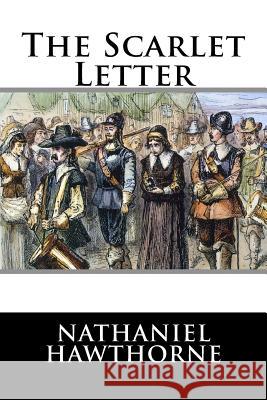The Scarlet Letter » książka
topmenu
The Scarlet Letter
ISBN-13: 9781514835265 / Angielski / Miękka / 2015 / 180 str.
The Scarlet Letter
ISBN-13: 9781514835265 / Angielski / Miękka / 2015 / 180 str.
cena 32,25
(netto: 30,71 VAT: 5%)
Najniższa cena z 30 dni: 31,80
(netto: 30,71 VAT: 5%)
Najniższa cena z 30 dni: 31,80
Termin realizacji zamówienia:
ok. 16-18 dni roboczych.
ok. 16-18 dni roboczych.
Darmowa dostawa!
"We dream in our waking moments, and walk in our sleep."
--- Nathaniel Hawthorne, The Scarlet Letter
Zawartość książki może nie spełniać oczekiwań – reklamacje nie obejmują treści, która mogła nie być redakcyjnie ani merytorycznie opracowana.











